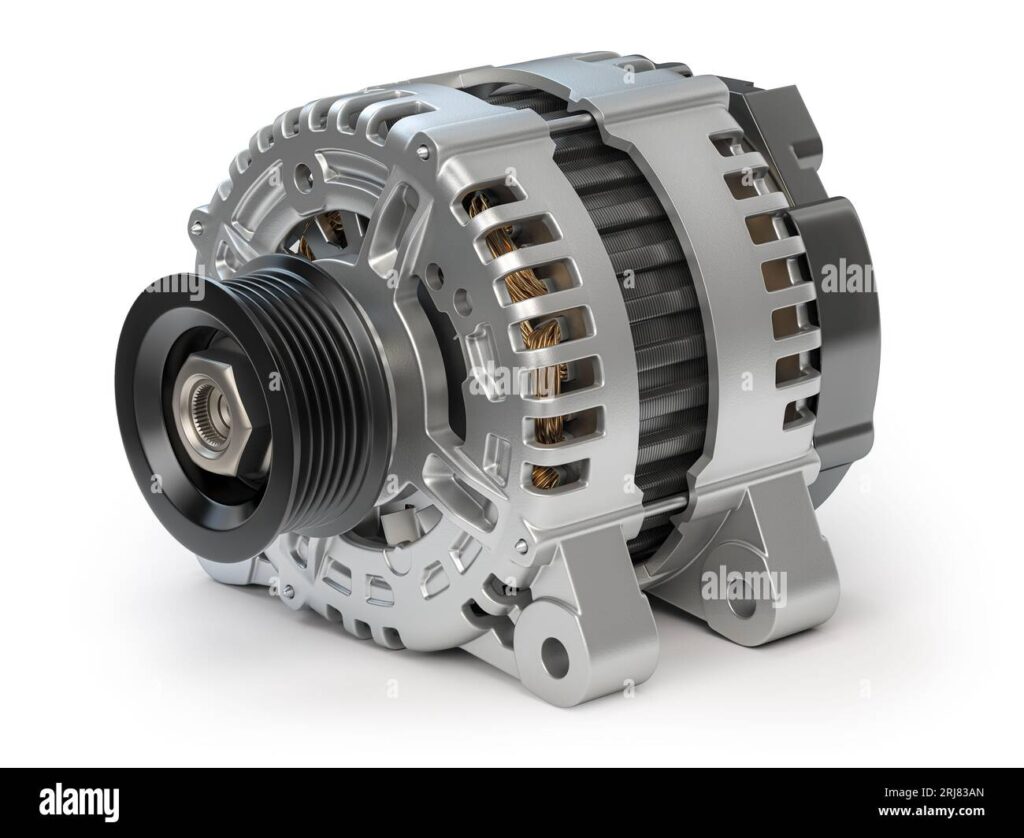
If you’ve ever heard strange noises coming from under the hood of your car, you know how alarming it can be. These noises can signal that something is wrong with your vehicle, and in many cases, one of the culprits could be your car alternator. The alternator is a vital part of your vehicle’s electrical system, responsible for charging the battery and providing power to the car’s electrical components. When it starts to fail, it often makes noticeable noises that can help you pinpoint the problem before it becomes a more serious issue.
Understanding the Role of the Car Alternator
The alternator is a key component in your car’s electrical system, converting mechanical energy into electrical power. It powers everything from your car’s lights and radio to the air conditioning and power windows. The alternator is driven by a belt attached to the engine, and when it begins to malfunction, it can cause a variety of symptoms, including strange noises.
Because the alternator works continuously as long as the engine is running, wear and tear over time is inevitable. However, these issues can often be identified by specific sounds coming from the engine bay, providing an early warning before the situation becomes worse.
Common Noises Caused by Alternator Problems
If your car alternator is malfunctioning, it will often produce certain types of sounds that can help you identify the issue. Here are some of the most common noises associated with alternator problems:
- Grinding Noise: One of the most common noises caused by a faulty alternator is a grinding sound. This noise is usually caused by worn-out bearings inside the alternator. The bearings are responsible for allowing the alternator to rotate smoothly, and when they wear down, they cause the alternator to make a grinding or squealing noise. This type of sound typically increases in volume as you accelerate, and it can indicate that the alternator needs to be replaced.
- Whining or High-Pitched Noise: Another common noise that can come from a failing alternator is a high-pitched whining sound. This noise is often compared to the sound of a belt slipping, but it’s usually coming directly from the alternator itself. The sound is typically caused by issues with the alternator’s internal components, such as a faulty voltage regulator or worn-out diodes. A whining noise can also signal that the alternator is working harder than it should, which could lead to further damage if not addressed.
- Squealing Noise: A squealing noise can occur when the alternator’s belt is slipping due to improper tension or wear. This noise is typically heard when you start the engine or when the alternator is under load, such as when the car’s electrical systems are being used heavily. If the squealing is persistent, it’s a sign that the alternator’s drive belt may need to be replaced or tightened.
- Banging or Knocking Sound: In rare cases, a knocking or banging sound can come from a failing alternator. This can be the result of loose parts inside the alternator or damage to the internal rotor or stator. If you hear this type of noise, it’s important to have your alternator inspected immediately, as the damage may be severe and could lead to a complete failure.
- Rattling Noise: A rattling sound coming from the alternator can indicate that something is loose or broken within the alternator itself. It could be caused by loose screws, damaged bearings, or other internal parts. A rattling noise is often a sign of severe damage, and it’s important to have the alternator checked right away to avoid further complications.
How to Diagnose the Problem
If you’re hearing strange noises from your alternator, it’s important to diagnose the problem as soon as possible to prevent a complete breakdown. Here’s how you can troubleshoot the issue:
- Listen Carefully: The first step is to pay attention to the type of noise you’re hearing. Is it grinding, whining, squealing, or something else? Each type of noise can point to a specific issue with the alternator. If you’re not sure what the sound is, try to narrow it down by driving your car and paying attention to when the noise occurs. Does it happen when you start the engine, when you accelerate, or when you turn on certain electrical systems?
- Check the Belt: A common cause of alternator noise is a worn or loose drive belt. Inspect the belt for signs of wear, cracks, or damage. If the belt looks worn, it may need to be replaced. You should also check the tension of the belt to make sure it’s properly adjusted. If the belt is slipping, tightening or replacing it could eliminate the squealing or whining noise.
- Examine the Alternator: If the noise persists after checking the belt, it’s time to examine the alternator itself. Look for visible signs of damage, such as rust, dirt, or oil around the alternator. You can also check the alternator for any loose screws or parts. If the alternator looks damaged or worn, it may be time for a replacement.
- Test the Alternator: If you suspect your alternator is failing, it’s a good idea to have it tested. Most auto parts stores and repair shops can test your alternator’s output to determine whether it’s charging the battery properly. A faulty alternator can cause low voltage, which could result in dim headlights or electrical failures. If the alternator isn’t working correctly, it will need to be replaced.
When to Seek Professional Help
If you’re unable to diagnose or fix the problem yourself, or if the noise persists after you’ve made adjustments, it’s best to seek professional help. Alternator problems can become serious if not addressed quickly, and it’s important to avoid further damage to the electrical system or the engine.
At Instantcarfix, we specialize in diagnosing and repairing alternator issues, along with a wide range of other car repair services. If you’re hearing strange noises from your alternator or suspect a problem with your vehicle’s electrical system, don’t hesitate to contact us. Our expert technicians will provide a thorough inspection and reliable repairs to get you back on the road with peace of mind.
